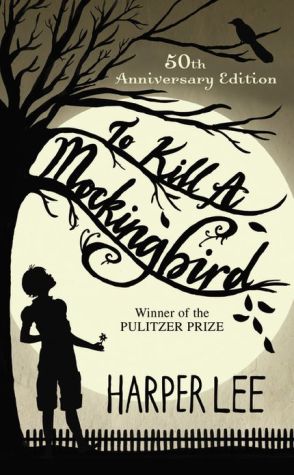Ties That Bind, Ties That Break
Third Sister in the Tao family, Ailin has watched her two older sisters go through the painful process of having their feet bound. In China in 1911, all the women of good families follow this ancient tradition. But Ailin loves to run away from her governess and play games with her male cousins. Knowing she will never run again once her feet are bound, Ailin rebels and refuses to follow this torturous tradition.\ As a result, however, the family of her intended husband breaks their marriage...
Search in google:
Third Sister in the Tao family, Ailin has watched her two older sisters go through the painful process of having their feet bound. In China in 1911, all the women of good families follow this ancient tradition. But Ailin loves to run away from her governess and play games with her male cousins. Knowing she will never run again once her feet are bound, Ailin rebels and refuses to follow this torturous tradition. As a result, however, the family of her intended husband breaks their marriage agreement. And as she enters adolescence, Ailin finds that her family is no longer willing to support her. Chinese society leaves few options for a single woman of good family, but with a bold conviction and an indomitable spirit, Ailin is determined to forge her own destiny. Her story is a tribute to all those women whose courage created new options for the generations who came after them.VOYAAilin's reminiscences, used as narration, are simple and straightforward, and the discussions of foot-binding are startlingly effective... Ailin's reminiscences, used as narration, are simple and straightforward, and the discussions of foot-binding are startlingly effective...
Our family, the Taos, lived in a compound with more than fifty rooms, all surrounded by a wall. Grandfather was head of the family, and he had two sons, Big Uncle and my father. Both of them lived there with their wives and children and their own servants. Each family had a set of rooms grouped around a courtyard. Although I spent most of the time in our own rooms with my parents, my two elder sisters, and my little brother, I often visited other courtyards.\ When I was a baby, my wet nurse had been a sturdy woman from the country who had lost her own baby and had milk to spare. I had a dim memory of sucking at her breast and listening to her croon lullabies. Even after I was too old to nurse, I loved to climb up on her broad lap and listen to her tell stories. I noticed that she spoke differently from the other people in our household. She was sent away when I was four, and there were times when I desperately missed her kindly face, her warm embrace, and her lilting country accent.\ My parents hired an amah, or governess, to replace her. My amah spoke in a soft, ladylike manner, but she had hard eyes that never missed a single thing. I hated her constant teaching and corrections, and I tried to annoy her by talking back, using my old wet nurse's accent.\ An even better way of annoying my amah was to run and hide when she called me. This was exactly what I was doing on the day when I first met my fiance. At the time I was not quite five years old, but because my amah had bound feet, I could run a lot faster and I didn't have any trouble escaping from her. I skipped through the round gates that led from one courtyard to another.\ I found a fragrant sweet-olive bush to crouch behind, and stifled my giggles as I heard my amah calling, "San Xiaojie! Little Miss Three!" Soon her voice lost its usual oily smoothness and became shrill.\ Then I heard another voice. "Ailin, we're having moon cakes," said Second Sister. "Grandmother is entertaining guests in her room."\ Moon cakes! I loved those little, rich, round cakes filled with sweet bean paste, nuts, lotus seeds, and other good things. I poked my head out from the bush. "Here I am! I bet I could stay here for a month without being found."\ Second Sister laughed, but my amah was not amused. She seized my wrist in a grip that hurt, but loosened it when I winced. I knew she would think of some way to punish me later, but not while Second Sister was watching.\ "Who are Grandmother's guests?" I asked as we hurried through two gates on our way to the courtyard where my grandparents lived.\ "Young Mrs. Liu and her son," said Second Sister. She stopped and looked at me. "Your collar is buttoned wrong. You're supposed to look your best, Grandmother said."\ "Why do I have to look my best?" I demanded. My amah undid the top button of my collar and pushed it through its proper loop.\ Second Sister smiled. "Since Eldest Sister and I are all fixed up, it's your turn now." She wet a finger and used it to wipe away a smudge on my cheek.\ "I don't understand," I said. "What do you mean by being all fixed up?"\ "She means that their marriages have been arranged," my amah said with a smirk. "So it's time for Little Miss Three's marriage to be arranged, too."\ "Mind you, I think you're still too young," said Second Sister. "You're not quite five."\ I couldn't help grinning at Second Sister, who was only thirteen but stood smoothing her hair and trying to look like a grown-up. Maybe she hoped people would mistake her for Grandmother.\ "It's never too early to have your marriage settled," said my amah. "Some babies are engaged before they're even born."\ I laughed. "They can't do that! What if the babies turn out to be both girls, or both boys?" I wasn't quite sure what a marriage meant, but I did know that it involved one of each kind, not two boys or two girls.\ "Don't be stupid," snapped my amah. She stopped, and said more quietly, "Of course the families would cancel the engagement if both babies turned out to be of the same sex."\ "Come on, we'd better hurry," said Second Sister, "or Grandmother will get mad."\ Always happy to visit Grandmother, I immediately ran on ahead. Every now and then, I stopped and waited impatiently for my amah and Second Sister. They followed more slowly, swaying gently and taking small, mincing steps because of their bound feet.\ At the entrance to Grandmother's room, my amah bowed and left as Second Sister and I entered and greeted Grandmother.\ "Come in, come in," said Grandmother impatiently. "What took you so long?" She turned to the guests. "These two silly scamps are my granddaughters, and their only aim in life is to make my old age miserable."\ I wasn't fooled by Grandmother's crusty manner. I knew she would let me get away with almost anything. Grandfather was a little more frightening, but he spent all his time in his study reading dusty books, so I didn't have to see much of him. The only grown-up who really scared me was Big Uncle, Father's eldest brother. He and Father spent a lot of time together, and Big Uncle was always criticizing little girls who were too fresh.\ Grandmother wore her usual long satin tunic over trousers, and on her head she wore her black velvet headband decorated with pieces of carved jade. The guests were a lady and a boy who looked somewhat older than I was, maybe seven or eight years old. The lady was elegantly dressed in one of the new fashions that some of my cousins' wives were wearing. It consisted of a silk hip-length tunic worn over a skirt reaching to the ankles. Grandmother always said that women's wearing skirts was a scandalous custom adopted from the foreigners.
\ From Barnes & NobleThe Barnes & Noble Review\ The third sister in the Tao family, Ailin is not quite five years old in 1911, a time of transformation in China, when Western philosophies are creating a wave of revolutions and the empire is crumbling. More spirited than her older sisters, Ailin rebels against the torturous age-old tradition of binding girls' feet. When the family of her intended husband breaks the marriage agreement because her feet are not bound, Ailin feels no remorse. But as she enters adolescence, her family is no longer willing to support her. She realizes for the first time just how powerless a girl of good family with no prospect of marriage is in Chinese society. \ Ailin has no intention of following that society's traditions. Not only can she read and write Chinese, but she also learns English and seeks a way to make her own living. When she is offered an opportunity that shocks her already estranged family, Ailin faces a decision that may further alienate her from her familial duty and from her country.\ Lensey Namioka has written an unforgettable saga of a girl who defies the ancient traditions of her class and heritage, emerging at last as a young woman with an indomitable spirit.\ \ \ \ \ \ VOYAAilin's reminiscences, used as narration, are simple and straightforward, and the discussions of foot-binding are startlingly effective... Ailin's reminiscences, used as narration, are simple and straightforward, and the discussions of foot-binding are startlingly effective...\ \ \ Publishers Weekly\ - Publisher's Weekly\ A wealthy girl growing up in early 20th-century Nanjing refuses to have her feet bound, severely limiting her choices in life. In a starred review, PW said, "With the force and intensity of a memoir, the novel chronicles a heroine who creates her own destiny through events as dramatic as they are credible, and weaves in just enough political history to help readers understand the turbulent climate." Ages 12-up. (Nov.) Copyright 2000 Cahners Business Information.\ \ \ \ \ Children's LiteratureNamioka delivers another historical novel that explores and questions the cultures it depicts. Centering on the life of Ailin Tao, a third daughter of a wealthy Chinese family who refuses to have her feet bound, the novel looks at the roles of women in China at the beginning of the 20th century. Heavy handed in its historical lessons, the book tells a powerful tale of a young woman carving out her own path in a society that suppresses the rights of women and self-determination. 1999, Dell/Laurel-Leaf, $4.99. Ages 10 up. Reviewer: Alexandria LaFaye\ \ \ \ \ KLIATTFrom the review of the hardcover in KLIATT, July 1999: Often reviewers say that a memoir reads like a work of fiction; here, it feels that this fiction is some grandmother's memoir—Ailin's voice is so strong. She tells this story of her childhood in China from 1911 until 1925. Her story is one of rebellion, which begins when she refuses to have her feet bound when she is five years old. Her aristocratic family had already arranged a marriage for her, but part of the contract is that she would have bound feet as all privileged Chinese women had—as her grandmother, mother, and sisters had. Her permissive father encourages her and arranges for young Ailin to attend a private school where she can use her mind and learn English. Her childhood is put abruptly to an end at the death of her beloved father, and Ailin finds a job to avoid being a concubine. Fortunately, her English and her enthusiasm as a student win the approval of the American missionaries who run her school, and she is hired as a nanny to two young American children when she is barely a teenager herself. The story continues with Ailin's coming to America and finding fulfillment as a young wife in a marriage of her own choice. Namioka takes her readers to an exotic time and place, and helps us understand a women's position in society at that time in China. We understand how far so many women have come in the last 100 years to get rid of oppressive traditions. KLIATT Codes: JS—Recommended for junior and senior high school students. 1999, Random House/Dell/Laurel-Leaf, 154p, 18cm, $4.99. Ages 13 to 18. Reviewer: Claire Rosser; January 2001 (Vol. 35 No. 1)\ \ \ \ \ School Library JournalGr 7-10-A story set in early 20th-century Nanjing, China. The third daughter in her prosperous family, Tao Ailin is the only one who manages to evade the tradition of foot binding, and her unbound feet make her common in the eyes of relatives and friends. In fact, the marriage that had been arranged for her when she was four is canceled by the boy's mother for that reason. Fortunately, Ailin's father is sensitive to her indomitable spirit and curious intellect. Although girls' education at that time was typically limited to "family schools," he arranges for her to attend a school run by American Protestant missionaries. She proves to be a gifted student, but her hope that she might someday become a teacher of English is dashed when her father dies when she is 12. Her uncle then gives her three choices: to become a nun, a farmer's wife, or a concubine. Defying him, she leaves home to care for the two young children of American missionaries and eventually travels to San Francisco with them. There, she later marries an ambitious young restaurateur. Set against the backdrop of political unrest and social change, this novel provides a realistic window into turn-of-the-century Chinese culture. Namioka creates in Ailin an archetype of the young women who not only questioned their roles in an emerging society but also had the courage to create new ones. Great for recreational reading, this solid story will also work well in supplementing social-studies units.-Sylvia V. Meisner, Allen Middle School, Greensboro, NC Copyright 1999 Cahners Business Information.\ \ \ \ \ Kirkus ReviewsNamioka (Den of the White Fox, 1997, etc.) offers readers a glimpse of the ritual of foot-binding, and a surprising heroine whose life is determined by her rejection of that ritual. Ailin is spirited—her family thinks uncontrollable—even at age five, in her family's compound in China in 1911, she doesn't want to have her feet bound, especially after Second Sister shows Ailin her own bound feet and tells her how much it hurts. Ailin can see already how bound feet will restrict her movements, and prevent her from running and playing. Her father takes the revolutionary step of permitting her to leave her feet alone, even though the family of Ailin's betrothed then breaks off the engagement. Ailin goes to the missionary school and learns English; when her father dies and her uncle cuts off funds for tuition, she leaves her family to become a nanny for an American missionary couple's children. She learns all the daily household chores that were done by servants in her own home, and finds herself, painfully, cut off from her own culture and separate from the Americans. At 16, she decides to go with the missionaries when they return to San Francisco, where she meets and marries another Chinese immigrant who starts his own restaurant. The metaphor of things bound and unbound is a ribbon winding through this vivid narrative; the story moves swiftly, while Ailin is a brave and engaging heroine whose difficult choices reflect her time and her gender. (Fiction. 9-14)\ \








